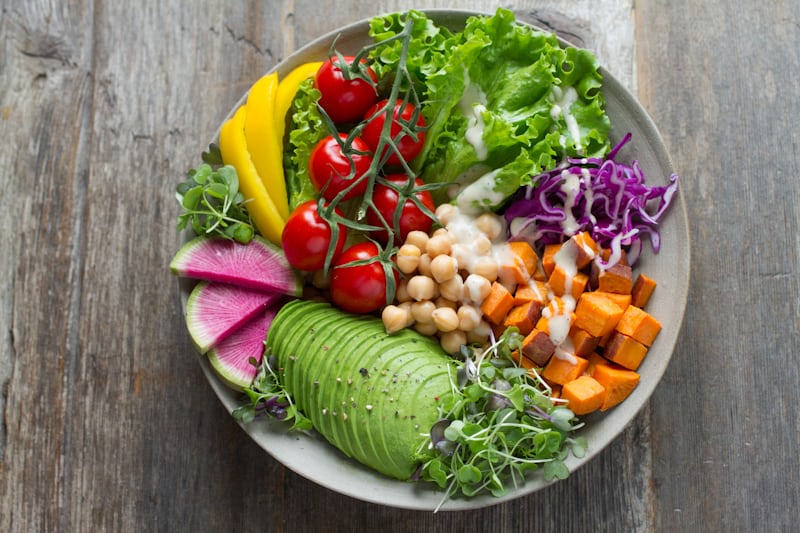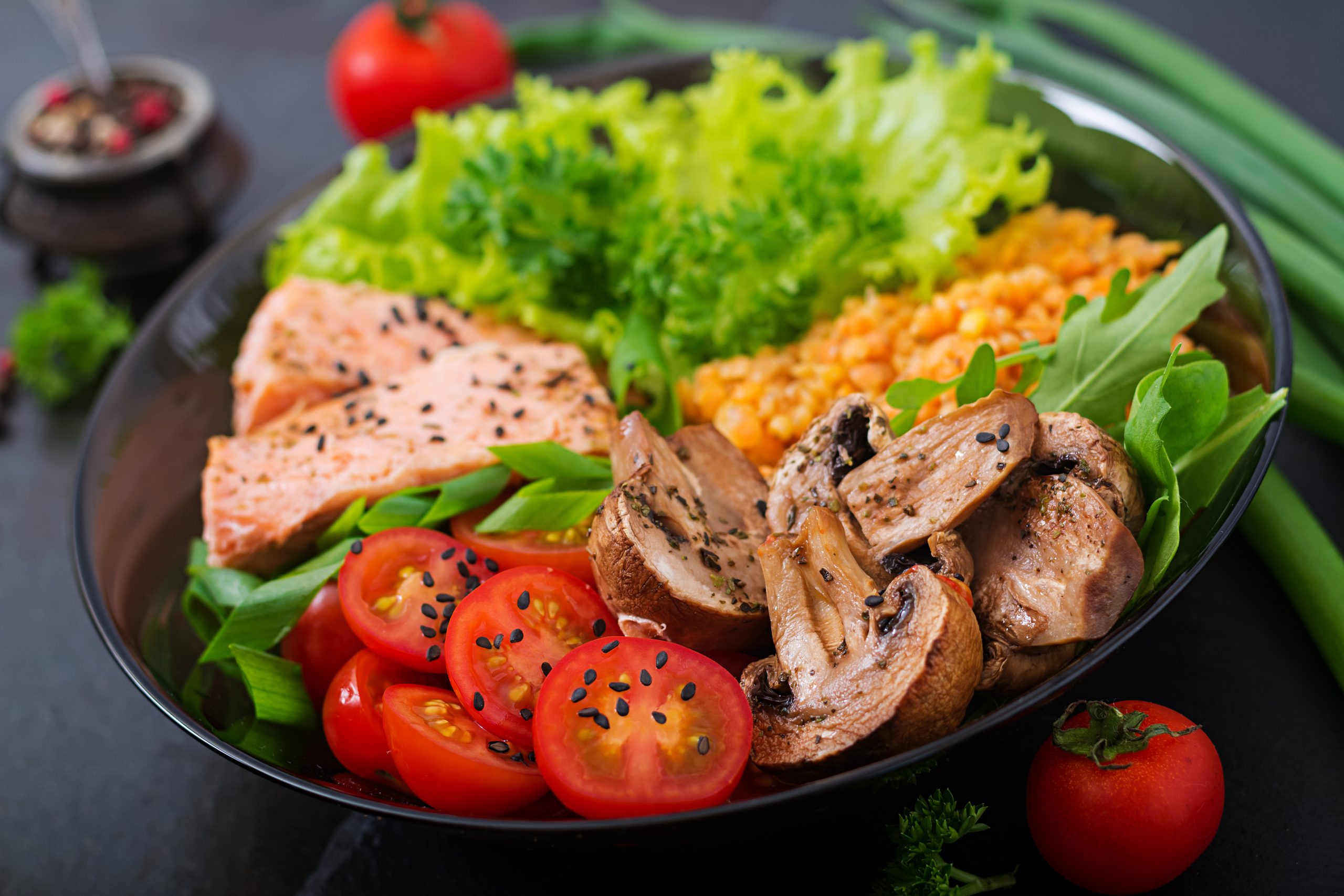Stress has become a common part of modern life, affecting both our mental and physical health. While meditation, exercise, and sleep are key ways to manage stress, nutrition also plays a crucial role. Eating the right foods can help reduce cortisol levels, improve mood, and even boost brain function. Incorporating stress-relieving foods into your daily diet is a natural way to support your overall well-being.
How Food Affects Stress
When you’re stressed, your body releases hormones like cortisol and adrenaline. While short-term stress responses are normal, chronic stress can cause inflammation, fatigue, anxiety, and digestive issues. Certain foods can:
- Regulate hormone levels
- Increase serotonin and dopamine (the “feel-good” neurotransmitters)
- Provide essential nutrients for brain health
- Reduce inflammation and oxidative stress
Top Stress-Relieving Foods
Here are some of the best foods scientifically linked to reducing stress and improving mental well-being.
1. Dark Chocolate
Dark chocolate is rich in antioxidants, magnesium, and flavonoids, which help reduce stress hormones and promote relaxation.
- Choose at least 70% cocoa for maximum benefits.
- Consume in moderation—about 20–30 grams per day.
- It can improve mood and reduce cortisol levels.
2. Fatty Fish
Fatty fish like salmon, mackerel, and sardines are high in omega-3 fatty acids, which support brain health and reduce inflammation caused by stress.
- Omega-3s help lower cortisol and adrenaline.
- Can improve mood, focus, and sleep quality.
- Include 2–3 servings per week for optimal benefits.
3. Nuts and Seeds
Almonds, walnuts, pumpkin seeds, and sunflower seeds are packed with healthy fats, magnesium, and zinc—all nutrients that combat stress.
- Magnesium helps relax muscles and calm nerves.
- Zinc supports brain function and immunity.
- A handful daily can provide lasting energy and mood support.
4. Leafy Greens
Spinach, kale, and Swiss chard are rich in magnesium, folate, and vitamins that help regulate stress hormones.
- Magnesium promotes relaxation and reduces anxiety.
- Folate helps produce serotonin for mood balance.
- Incorporate a serving into salads, smoothies, or sautés daily.
5. Berries
Blueberries, strawberries, and raspberries are high in antioxidants, vitamin C, and fiber, which help fight oxidative stress and inflammation.
- Vitamin C reduces cortisol and strengthens the immune system.
- Antioxidants protect brain cells from stress-induced damage.
- Enjoy fresh or frozen as snacks or in breakfast bowls.
6. Avocado
Avocados are rich in monounsaturated fats, potassium, and B vitamins, all of which help lower blood pressure and support the nervous system.
- Potassium regulates blood pressure and heart rate during stress.
- B vitamins support energy and mood balance.
- Add to salads, smoothies, or toast for a nutrient boost.
7. Whole Grains
Oats, quinoa, brown rice, and whole wheat provide complex carbohydrates that stabilize blood sugar and boost serotonin.
- Steady blood sugar levels help prevent mood swings.
- Complex carbs increase serotonin for calm and happiness.
- Include whole grains in meals instead of refined carbs.
8. Yogurt and Fermented Foods
Probiotics found in yogurt, kefir, sauerkraut, and kimchi support gut health, which is closely linked to stress management.
- The gut-brain axis plays a key role in mood regulation.
- Probiotics can reduce anxiety and stress hormone levels.
- Include a serving daily for a healthy gut and mind.
9. Herbal Teas
Chamomile, green tea, and lavender tea contain calming compounds that help relax the nervous system.
- Chamomile promotes relaxation and better sleep.
- Green tea contains L-theanine, which reduces anxiety.
- Enjoy 1–2 cups daily as part of a stress-relief routine.
10. Citrus Fruits
Oranges, lemons, and grapefruits are high in vitamin C, which lowers cortisol and boosts immunity.
- Vitamin C reduces oxidative stress and supports adrenal function.
- Fresh juice or whole fruits can be added to meals or snacks.
- Helps combat fatigue and mental stress.
Additional Tips to Use Food for Stress Relief
- Stay Hydrated: Dehydration can increase stress levels and irritability. Drink enough water throughout the day.
- Limit Sugar and Processed Foods: High sugar intake can spike blood sugar and worsen mood swings.
- Eat Balanced Meals: Include protein, healthy fats, and complex carbs for stable energy and stress management.
- Mindful Eating: Slow down, savor each bite, and notice how food makes you feel.
- Snack Smart: Nuts, fruits, and yogurt are better than chips or candy for stress relief.
Sample Daily Meal Plan for Stress Relief
Here’s an example of how to include stress-relieving foods into your daily diet:
- Breakfast: Oatmeal topped with blueberries, chia seeds, and a drizzle of almond butter.
- Snack: A handful of walnuts and an orange.
- Lunch: Grilled salmon salad with spinach, avocado, and cherry tomatoes.
- Snack: Yogurt with strawberries or a green smoothie with kale and banana.
- Dinner: Quinoa with roasted vegetables, pumpkin seeds, and a side of sauerkraut.
- Evening: A cup of chamomile or green tea before bed.
Final Thoughts
While stress cannot always be avoided, what you eat can make a significant difference in how your body and mind respond. Incorporating these stress-relieving foods into your daily meals can help reduce anxiety, boost mood, improve brain function, and strengthen your immune system. Remember, nutrition works best in combination with other stress-management techniques like exercise, mindfulness, and proper sleep.
Start small, experiment with these foods, and notice the positive changes in your mood and energy levels. Over time, mindful eating and smart food choices can become a natural part of your stress-relief routine.



